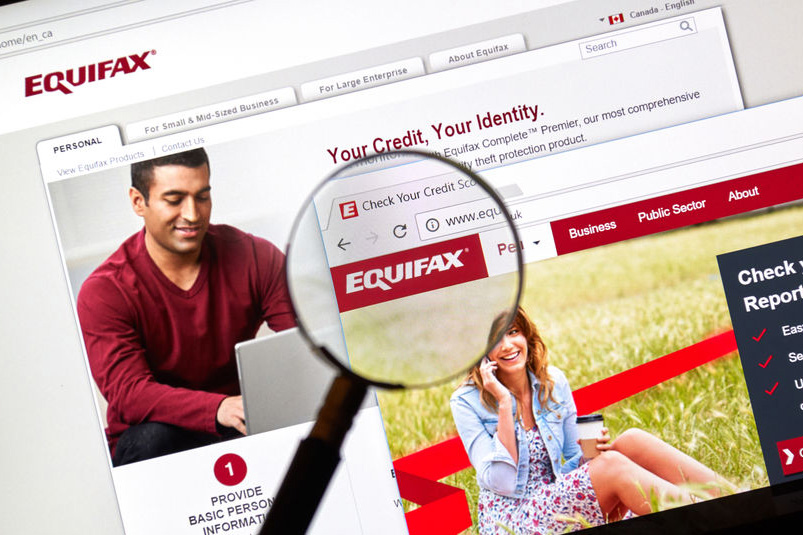You Credit Report Explained
It’s important to understand your credit report and to make sure is it correct without erroneous entries, especially if you are about to apply for a mortgage or other credit.
If you’ve debt problems – firstly, you need to know how much you owe and to whom. Your credit report shows your accounts (including balances) involving credit. It won’t show, for example, council tax arrears, rent arrears nor other overdue fees, such as with a private nursery.

There are several credit report providers but all contain the same type of information, this guide was written with specific reference and terminology used in Equifax's ClearScore free to consumer credit report service.
Your financial associations
Financially associations are people you have a financial connection with; for example, your partner should you have a joint bank account or mortgage.
Many people unexpectedly find themselves financially associated with ex-flatmates or partners through being jointly named on utility accounts such as gas and electricity.
A word about ‘Joint Debts’
Very few credit agreements are joint. If you share a credit card with a partner, one is the primary account holder and responsible for the repayment of the balance. Additional cardholders have no such responsibility and simply permitted to spend on the primary cardholder’s card. Who spent the money and who benefited from it is not relevant in terms of liability to make repayments.
Marriage, children, or sharing a residence are not themselves enough for a financial association to be made.
Your Current Address
These are the addresses where you are currently registered on the electoral roll – and how long you are known to have lived there. This is important as the permanence of residence in an indicator to the stability of other aspects of life.
If you are not on the electoral roll at your current address, it is advisable to register to vote.
Other Addresses
These are the addresses where you have previously been registered on the electoral roll. Also, any known current and previous addresses that you were a resident of when applying for credit; or known to your bank, or another financial account holder.
Account information
Any active credit-bearing accounts, balance and a history of made and missed payments are included.
It is up to the account provider to keep this current, and these tend to be updated monthly.
Mobile phone contracts are included showing the outstanding credit part of the agreement.
Closed accounts may be included for six years after the date of closure.
Insolvencies
Any County Court Judgements (CCJs) in the past six years are shown. Also, any participation and subsequent discharge in an insolvency procedure is recorded; which for England and Wales can be an IVA, Bankruptcy or Debt Relief Order.
Defaults and adverse information
Default notices, if registered, are marked against the corresponding account and may be listed for six years from the date issued.
County Court Judgments, High Court Judgments, Decrees or Administration Orders usually remain for six years from the date they were granted.
Once judgments have paid in full a certificate satisfaction or if cancelled, a certificate of cancellation should be recorded.
Searches
Your credit report can be searched for different reasons, and not all searches have the same impact on your report. Credit application searches are done when you apply for credit. These are visible to other lenders, and having too many in a short space of time can affect your score. These are referred to as hard searches.
Quotation searches are done before you apply and tell you whether you’re likely to be accepted for a credit product. They are only visible to you (not to lenders) and don’t affect your score. These are referred to as soft searches. Don’t be alarmed by seeing many of these which you may not immediately recognise and an insurance quote search engine can produce several in one go. Even though you may think credit and insurance applications are unconnected, a better credit rating can result in a better insurance quote.
Personal searches are another type of soft search and are done when you check your credit report through a credit checking service. These are only visible to you and do not affect your score.
How long this search information is held depends on the credit reference agency.
Corrections
A notice of correction is a note that gives further explanation of the information on your report which is not necessarily wrong. Still, if you believe it might provide lenders with a misleading impression of you. For example, you might want to explain that a period of missed payments was due to redundancy or a change in family circumstances.
Restricted access information
Some parts are your credit file are not viable to you; its there for the further protection of lenders.
Council of Mortgage Lenders’ repossession register
The CML maintains a register of those who have given up their interest in a property or been subject to a repossession. This is an indication of risk for any future mortgage lenders. The note stays on your credit file for six years but is only viewable by members of the Council of Mortgage Lenders.
GAIN (Gone Away Information Network)
If you fail to maintain payments and subsequently move address without informing the creditor, you there can be is an entry in the GAIN section.
GAIN is a trade organisation that shares information about customers with statements and other correspondence undelivered by the Post Office, recorded as ‘gone away’. This information remains for six years and is viewable by participants of GAIN only.
CIFAS (The UK’s fraud prevention service)
An entry may be made under CIFAS in cases of fraud or attempted fraud to warn other lenders and protect customers. Only members of CIFAS see full details this information. Equifax refers under ‘protective registration’ and shows only you the consumer if a record exists, not the details.
See also: How To Improve Your Credit Rating